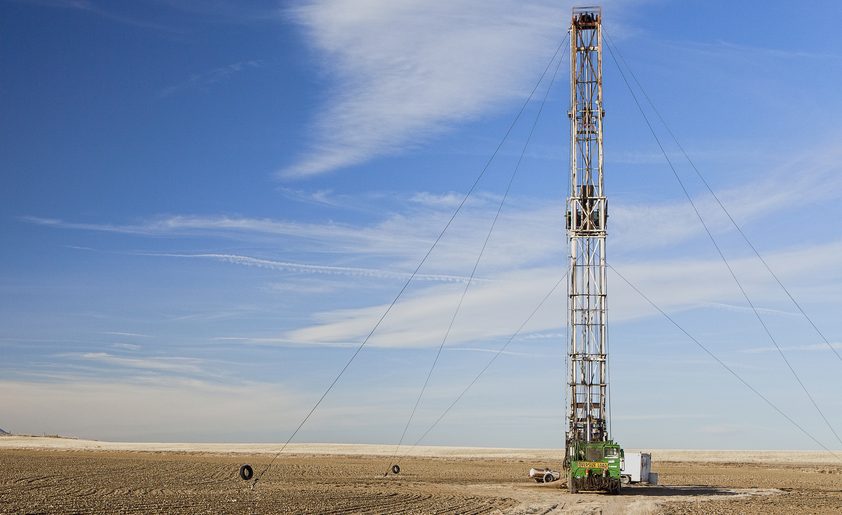The truth about fracking
With a predicted gas shortage and increasing disruption in the energy sector, it’s now more important than ever to recognise the economic and supply benefits unconventional gas, extracted by fracking, can offer. Despite a flood of misinformation, overwhelming scientific research has continually found fracking to be safe if properly regulated.
 Many states around Australia have had moratoria on fracking, and recently Victoria has banned all fracking operations through the passing of the Resources Legislation Amendment (Fracking Ban) Bill 2016.
Many states around Australia have had moratoria on fracking, and recently Victoria has banned all fracking operations through the passing of the Resources Legislation Amendment (Fracking Ban) Bill 2016.
However, numerous inquiries into the environmental effects of fracking have all found the same thing; if properly regulated, it is safe.
Wade Elofson, Founder of Powered, an Australian energy and resource-focused business development company, said that fracking has been successfully used to stimulate wells both domestically and around the world for years.
“In Alberta, Canada, there has been more than 80,000 wells fracked and it’s regarded as an acceptable practice if done properly and regulations are followed,” Mr Elofson said.
“Similar to the coal seam gas industry, which has been around for years in Australia and around for many decades in the US and Canada, responsible fracking helps stimulate an industry with enormous economic benefits.”
Backed by science
A two-year parliamentary inquiry into fracking technologies by the Western Australian Legislative Council’s Environment and Public Affairs Committee which began in 2015 found that fracking posed negligible risk.
In 2016, the Western Australian Government accepted, in part, ten recommendations made by the Committee and endorsed a fact-based approach to production.
An information sheet released by the Queensland Government Department of Environment and Heritage Protection also stated, “Like any commercial or resource activity there are risks, but when these risks are managed appropriately then fracking is a safe activity for the environment and surrounding communities.”
These are only two of many inquiries that have reached the same conclusion; that if the risks are managed, fracking can be conducted safely and successfully. These inquiries continue despite that fact that in 2015, Australia’s Chief Scientist Dr Alan Finkel said, ”The evidence is that, if properly regulated, it’s completely safe.”
Significant economic benefits
The Australian Government Department of Industry, Innovation and Science’s report Review of the socioeconomic impacts of coal seam gas in Queensland stated that there are also strong economic impacts relating to coal seam gas development.
The report states, “Headline economic impacts of CSG development in Queensland to date are found to be net positive, and are attributable to increases in employment, income, output, consumption and government revenue.”
Fracking supports CSG development and its economic benefits by increasing the surface area for gas desorption and allowing gas to flow to the surface more freely.
Demystifying fracking
The Australian Petroleum Production and Exploration Association (APPEA) states that there has been a lot of misinformation about the process and effects of fracking, which is a view held by many in the industry that have seen the scientific evidence.
“Industry and government have a detailed knowledge of the hydraulic fracturing process and of the chemicals being used. The process has been used for more than 65 years in more than two million wells around the world. Numerous studies have found that there have been no proven cases of contamination of aquifers,” APPEA’s website states.
Given the Australian Energy Market Operator’s (AEMO) warning of a gas supply shortage from as early as 2018, the industry is looking to find ways to increase supply across Australia. Fracking, fracture stimulation, hydraulic fracturing, fraking, fraccing, hydrofracking or fracturing – whatever it’s called, if done properly it has the potential to provide a positive impact on Australia’s gas supply.
The inquiries and research into fracking continue with an independent Scientific Inquiry into Hydraulic Fracturing in the Northern Territory having concluded its first stage of community consultation in late March 2017.
When the final terms of reference for this inquiry were announced in late 2016, APPEA’s Northern Territory Director Matthew Doman said the industry would support the inquiry and work with it to ensure all information was based in fact and relevant to proposed development in the state. This includes assessing the social and economic benefits associated with the onshore unconventional gas industry.


